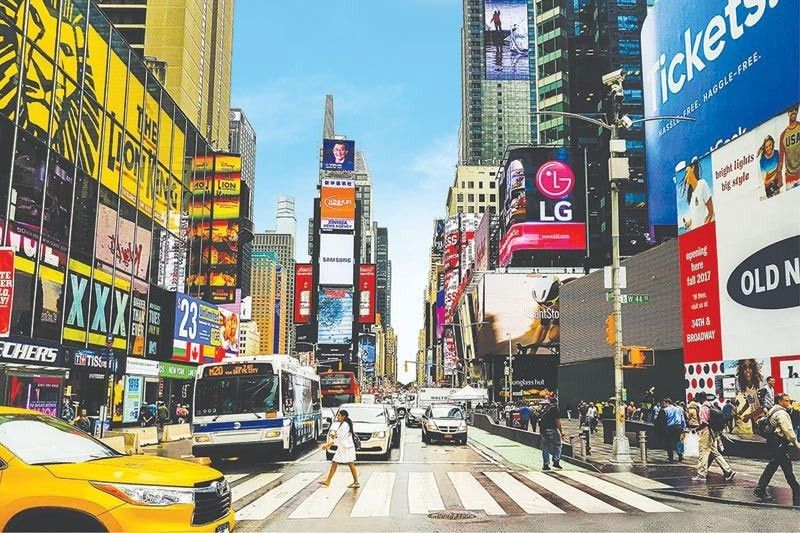New York sends plastic bags packing

NEW YORK – Consumerist mecca New York targets its throwaway culture this weekend with a ban on single-use plastic bags that has been years in the making and is still rare in America.
New Yorkers like to see themselves at the forefront of efforts to save the environment but are used to receiving groceries in free plastic bags, often doubled up to ensure sturdiness.
On Sunday, that will change when New York becomes only the third US state to outlaw the non-biodegradable sacks blamed for choking rivers, littering neighborhoods and suffocating wildlife.
Environmental activists welcome the new law but caution that exemptions will weaken its effect, while some small businesses worry the ban might negatively impact their profits.
At the Westside Market in Manhattan, 66-year-old Janice Vrana, who says she has been shopping with a reusable cloth bag for a decade, is delighted “pervasive” plastic sacks are being banished.
“You could drive over them 500 times with a Mack Truck and they probably wouldn’t break down. Whatever little I can do, I do,” she told AFP.
Janine Franciosa, a 38-year-old who works in advertising, said it is great people are becoming more aware of how their “everyday purchases are affecting the environment.”
But not everyone is happy.
Westside Market manager Ian Joskowitz, 52, told AFP some customers were “upset” because they use free plastic bags as garbage bags.
Fines
New York uses some 23 billion plastic bags every year, according to the state government.
About 85 percent are thrown away, ending up in landfills, and on streets and beaches, it says.
After several failed attempts, lawmakers finally approved the ban in April 2019.
It bars all retailers who pay state taxes – such as department stores, supermarkets, neighborhood corner stores and gas stations – from providing plastic bags to customers.
Violators can expect fines of up to $500, although officials have said they will give stores time to adapt to the new rules.
The ban will “protect our natural resources for future generations,” said Gov. Andrew Cuomo when he announced the legislation last year.
The law allows New York city and counties to levy a five-cent tax on paper bags, with part of the resulting revenue going to an environmental protection fund.
Kate Kurera, deputy director of Environmental Advocates of New York, says the ban will cause “a tremendous reduction” in plastic waste pollution.
She laments, however, that food takeouts, beloved by the city’s 8.6 million inhabitants, are exempt.
Other exemptions include bags for prescription drugs, plastic wrapping for newspapers delivered to subscribers and bags used solely for non-prepackaged food such as meat and fish.
Kurera wishes the government would make the paper bag fee mandatory to force customers to bring their own carriers, noting that producing paper bags is intensive in terms of oil, fossil fuels and trees used.
‘Live with it!’
“Ideally neither bag is preferable,” she told AFP. “Behavior is slower to change when people know they can get a free paper bag.”
Greg Biryla, New York state director at the National Federation of Independent Business, says alternatives can cost up to seven times more than plastic bags.
“They are proportionally more burdensome on small businesses who aren’t ordering in as big a quantity as their big business counterparts,” he told AFP.
California and Oregon have statewide bans of plastic bags while Hawaii has a de facto ban.
Four other states have bans starting soon, while Texas has prevented its cities from outlawing plastic bags.
New York is viewed as one of the most innovative cities in the world, but on the issue of plastic it has some catching up to do internationally.
Ubiquitous across the Big Apple are single-use plastic utensils such as cutlery, straws and stirrers, which European Union countries have voted to outlaw by next year.
New York’s older residents note that plastic bags only became available in US grocery stores in 1979, signaling how quickly habits can change.
“When I was growing up we brought our own bags,” shopper Denise Shaleaon told AFP, adding of the ban: “The New Yorker will have to live with it!”
- Latest
- Trending
































